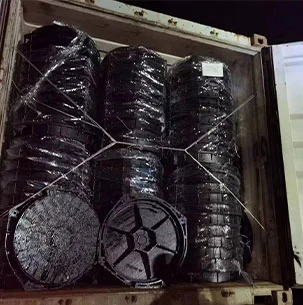
Sep . 19, 2024 20:10 Back to list
gas fired hot water furnace
Understanding Gas Fired Hot Water Furnaces
In many households, maintaining a consistent and comfortable temperature is essential, especially during the colder months. One popular solution for heating water and providing warmth to living spaces is the gas fired hot water furnace. This system is recognized for its efficiency, reliability, and effectiveness, making it a preferred choice in numerous residential and commercial buildings.
A gas fired hot water furnace operates by burning natural gas or propane to heat water. This heated water is then circulated throughout the home, delivering warmth through radiators, baseboards, or even underfloor heating systems. One of the primary advantages of this type of heating is its ability to produce hot water rapidly, ensuring that households have a steady supply, even during peak usage times.
Efficiency is a key consideration when it comes to heating systems, and gas fired hot water furnaces are designed to offer significant energy savings compared to traditional electric heating systems. Modern units boast high-efficiency ratings, often exceeding 90%. This is achieved through advanced combustion technology and the use of condensing flue gas systems, which reclaim waste heat and utilize it to preheat incoming water. Such innovations not only reduce energy consumption but also lower utility bills, making gas fired furnaces an economically wise choice.
gas fired hot water furnace

Another benefit of gas fired hot water furnaces is their environmentally friendly profile. Natural gas is considered a cleaner-burning fuel compared to oil or coal, producing fewer greenhouse gas emissions. With the growing emphasis on sustainability, many homeowners are opting for systems that contribute to a lower carbon footprint. By choosing a gas fired hot water furnace, residents can enjoy comfortable living conditions while being mindful of their impact on the environment.
Installation and maintenance of gas fired hot water furnaces require professional expertise. It is crucial to ensure proper ventilation and adherence to safety codes to prevent potential hazards, such as gas leaks or carbon monoxide buildup. Regular maintenance, including inspection of the burners, heat exchangers, and pipes, is necessary to maintain the system’s efficiency and prolong its lifespan.
When considering a gas fired hot water furnace, potential buyers should evaluate factors such as the size of the home, the number of occupants, and future heating needs. These furnaces are available in various sizes and capacities to accommodate diverse requirements. Consulting with a heating professional can provide insight into the most suitable model, ensuring optimal performance for your specific situation.
In conclusion, gas fired hot water furnaces represent an efficient and effective solution for home heating. With their ability to quickly produce hot water, significant energy savings, environmental benefits, and overall reliability, they stand out as a desirable choice for homeowners seeking comfort and efficiency. As technology progresses, these systems continue to evolve, offering even greater benefits while contributing to a more sustainable future. Embracing modern heating solutions like gas fired hot water furnaces not only enhances home comfort but also promotes responsible energy use.
-
High-Efficiency Commercial Oil Fired Steam Boiler for Industry
NewsJul.30,2025
-
High-Efficiency Biomass Fired Thermal Oil Boiler Solutions
NewsJul.30,2025
-
High Efficiency Gas Fired Thermal Oil Boiler for Industrial Heating
NewsJul.29,2025
-
High-Efficiency Gas Fired Hot Water Boiler for Sale – Reliable & Affordable
NewsJul.29,2025
-
High Efficiency Biomass Fired Hot Water Boiler for Industrial and Commercial Use
NewsJul.29,2025
-
High-Efficiency Biomass Fired Hot Water Boiler for Industrial Use
NewsJul.28,2025
Related PRODUCTS






















